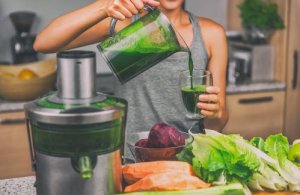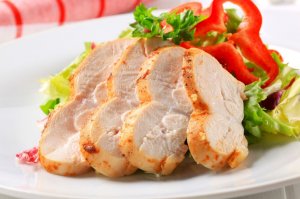Recovery Diet: What to Eat After Working out

Proper nutrition is key to optimal athletic performance. As such, athletes need to personalize their diets for the different stages entailed by their chosen practice, including a recovery diet.
Preparation for athletic competition should include both appropriate training focused on the discipline in question, as well as a healthy diet adapted to the athlete’s specific needs.
An athlete’s recovery diet should be based on different guidelines depending on:
- The type of competition.
- The athlete’s characteristics (gender, age, weight).
- The context of the athletic activity (competition schedule, upcoming competitions).

Recovery diet
Carbohydrates
This type of macronutrient can have different functions, but in terms of athletic activity, it will serve as your primary fuel source. To this end, you should ensure that you have sufficient stores of glycogen and an adequate supply of carbohydrates during and after competition.
As a dietary strategy after the competition, carbohydrates should be consumed within two hours after the competition (anabolic window) in order to replenish the glycogen reserves in the muscles and liver.
The general recovery consists of about 7-12 g/kg/day. Meanwhile, if the next competition is in less than eight hours, it should be 1-1.2 g/kg/h, through the first four hours.
Some competitors will not have an appetite immediately after the competition, so they replace the carbs via aqueous solutions featuring glucose and sucrose.
The glycemic index of these carbs should be low, except if you have a competition the next day. In that case, the glycemic index should be moderate to high.
- Examples of foods with a low glycemic index are: apples, strawberries, cherries, and avocado.
- Examples of foods with a moderate to high glycemic index are: whole-wheat rye bread, oat flakes, bananas, watermelon, and melon.

In order to restore glycogen, you need to consume 3ml of water and 20mg of potassium for every gram.
Proteins
A protein is made up of various individual components called amino acids. Some of these are essential amino acids, which is to say that the body cannot produce them on its own. For this reason, you need to account for this in your diet.
In total, there are 20 amino acids, but only eight of them are essential. A protein is considered complete when it contains all the essential amino acids. Otherwise, it will be necessary to complement it with the protein of another food that contains it. In other words, a protein that is rich in essential amino acids has greater biological value.
Right after exercise, you should consume proteins along with carbs in order to ensure better glycogen replenishment. The proportion of carbs to proteins should be 3-4 g: 1g.

You can also supplement your diet with partially hydrolyzed proteins for certain cycling competitions or marathons. Do this during the recovery period after exercise.
Water and electrolytes
During periods of athletic competition, you lose more water and with it electrolytes. This can lead to dehydration, as well as fatigue, cramps, etc. The sensation of thirst begins at one to two percent dehydration. There is a risk of death at over 20 percent.

A hydration routine needs to be individualized. Different athletes will lose different amounts of water. The post-competition recommendations for a recovery diet are:
- Immediate hydration.
- The consumption should equal 150 percent of the weight lost. It should occur in the first six hours following exercise.
- It is important to drink even when you are not thirsty.
- Composition: sodium, potassium, and others depending on the results of the electrolyte panel (300-350 kcal / liter).
Micronutrients
- Potassium: due to its loss through sweat and urination, it is important to replenish it using recovery drinks in addition to the foods you eat as part of your recovery diet. This will help to restore glycogen.
- Other: depending on the athlete’s individual electrolyte panel.
Goals and considerations
As we have seen, the goals of a recovery diet are the replenish glycogen and rehydrate the body.
- If a competition is followed by another within a few hours or the next day, your carbohydrate consumption should be 1-1.2 g/kg of weight and a moderate to high glycemic index in the first four hours.
- As soon as you finish, you should drink at least 500ml of liquid. Continue hydrating later.
- If there is no other competition coming soon, the amount of carbs will remain the same, but with a low glycemic index. In addition, consume one gram of protein per three to four grams of carbohydrates. In this case, it is important to avoid fats.
Eating immediately after
You probably will not be hungry, so you can have snacks before the recovery meal. Examples include:
- 60 grams of bread and a banana.
- A glass of skim milk (avoid fat) and 60 grams of cereal.
- 750ml of an isotonic drink.
- 150ml of natural juice or two small fruits, plus 60 grams of cereal.
The main recovery meal should not be very high in calories, but it is important to reestablish your hydro-mineral balance. It should be rich in carbs, which provide some proteins and some alkaline content.
You need to avoid overloading your liver and kidneys to eliminate urea and other toxins that form during competition as part of your body’s metabolism. In addition, avoid diuretics and alcohol.
Last but not least, remember that the transition back to your normal diet should be made gradually over the 24-48 hours following the competition.
Proper nutrition is key to optimal athletic performance. As such, athletes need to personalize their diets for the different stages entailed by their chosen practice, including a recovery diet.
Preparation for athletic competition should include both appropriate training focused on the discipline in question, as well as a healthy diet adapted to the athlete’s specific needs.
An athlete’s recovery diet should be based on different guidelines depending on:
- The type of competition.
- The athlete’s characteristics (gender, age, weight).
- The context of the athletic activity (competition schedule, upcoming competitions).

Recovery diet
Carbohydrates
This type of macronutrient can have different functions, but in terms of athletic activity, it will serve as your primary fuel source. To this end, you should ensure that you have sufficient stores of glycogen and an adequate supply of carbohydrates during and after competition.
As a dietary strategy after the competition, carbohydrates should be consumed within two hours after the competition (anabolic window) in order to replenish the glycogen reserves in the muscles and liver.
The general recovery consists of about 7-12 g/kg/day. Meanwhile, if the next competition is in less than eight hours, it should be 1-1.2 g/kg/h, through the first four hours.
Some competitors will not have an appetite immediately after the competition, so they replace the carbs via aqueous solutions featuring glucose and sucrose.
The glycemic index of these carbs should be low, except if you have a competition the next day. In that case, the glycemic index should be moderate to high.
- Examples of foods with a low glycemic index are: apples, strawberries, cherries, and avocado.
- Examples of foods with a moderate to high glycemic index are: whole-wheat rye bread, oat flakes, bananas, watermelon, and melon.

In order to restore glycogen, you need to consume 3ml of water and 20mg of potassium for every gram.
Proteins
A protein is made up of various individual components called amino acids. Some of these are essential amino acids, which is to say that the body cannot produce them on its own. For this reason, you need to account for this in your diet.
In total, there are 20 amino acids, but only eight of them are essential. A protein is considered complete when it contains all the essential amino acids. Otherwise, it will be necessary to complement it with the protein of another food that contains it. In other words, a protein that is rich in essential amino acids has greater biological value.
Right after exercise, you should consume proteins along with carbs in order to ensure better glycogen replenishment. The proportion of carbs to proteins should be 3-4 g: 1g.

You can also supplement your diet with partially hydrolyzed proteins for certain cycling competitions or marathons. Do this during the recovery period after exercise.
Water and electrolytes
During periods of athletic competition, you lose more water and with it electrolytes. This can lead to dehydration, as well as fatigue, cramps, etc. The sensation of thirst begins at one to two percent dehydration. There is a risk of death at over 20 percent.

A hydration routine needs to be individualized. Different athletes will lose different amounts of water. The post-competition recommendations for a recovery diet are:
- Immediate hydration.
- The consumption should equal 150 percent of the weight lost. It should occur in the first six hours following exercise.
- It is important to drink even when you are not thirsty.
- Composition: sodium, potassium, and others depending on the results of the electrolyte panel (300-350 kcal / liter).
Micronutrients
- Potassium: due to its loss through sweat and urination, it is important to replenish it using recovery drinks in addition to the foods you eat as part of your recovery diet. This will help to restore glycogen.
- Other: depending on the athlete’s individual electrolyte panel.
Goals and considerations
As we have seen, the goals of a recovery diet are the replenish glycogen and rehydrate the body.
- If a competition is followed by another within a few hours or the next day, your carbohydrate consumption should be 1-1.2 g/kg of weight and a moderate to high glycemic index in the first four hours.
- As soon as you finish, you should drink at least 500ml of liquid. Continue hydrating later.
- If there is no other competition coming soon, the amount of carbs will remain the same, but with a low glycemic index. In addition, consume one gram of protein per three to four grams of carbohydrates. In this case, it is important to avoid fats.
Eating immediately after
You probably will not be hungry, so you can have snacks before the recovery meal. Examples include:
- 60 grams of bread and a banana.
- A glass of skim milk (avoid fat) and 60 grams of cereal.
- 750ml of an isotonic drink.
- 150ml of natural juice or two small fruits, plus 60 grams of cereal.
The main recovery meal should not be very high in calories, but it is important to reestablish your hydro-mineral balance. It should be rich in carbs, which provide some proteins and some alkaline content.
You need to avoid overloading your liver and kidneys to eliminate urea and other toxins that form during competition as part of your body’s metabolism. In addition, avoid diuretics and alcohol.
Last but not least, remember that the transition back to your normal diet should be made gradually over the 24-48 hours following the competition.
All cited sources were thoroughly reviewed by our team to ensure their quality, reliability, currency, and validity. The bibliography of this article was considered reliable and of academic or scientific accuracy.
- Abrines, M. de la C. (2015). La ingesta de hidratos de carbono, antes, durante y después de una competencia deportiva. Universidad FASTA. Facultad de Ciencias Médicas.
- Mark A Tarnopolsky, M. Bosman, J. R Macdonald, D. Vandeputte y J. Martin (1997). Los Suplementos de Proteínas-carbohidratos y Carbohidratos Post-ejercicio incrementan el Glucógeno Muscular en Hombres y Mujeres. PubliCE.
https://g-se.com/los-suplementos-de-proteinas-carbohidratos-y-carbohidratos-post-ejercicio-incrementan-el-glucogeno-muscular-en-hombres-y-mujeres-186-sa-K57cfb271136eb - Martínez Reñón, Cristian y Sánchez Collado, Pilar. (2013). Estudio nutricional de un equipo de fútbol de tercera división. Nutrición Hospitalaria , 28 (2), 319-324. https://dx.doi.org/10.3305/nh.2013.28.2.6304
- Medina, M. Sánchez, E. (2017). Influencia de la ingestión de bebidas de Carbohidratos-Electrolitos en el rendimiento deportivo en seleccionados de fútbol de la ESPOL. [Tesis de grado]. Escuela Superior Politécnica del Litoral.
- Rosés, J. M., & Pujol, P. (2006). Hidratación y ejercicio físico. Apunts Medicina de l Esport, 41(150), 70–77. https://doi.org/10.1016/s1886-6581(06)70013-5
This text is provided for informational purposes only and does not replace consultation with a professional. If in doubt, consult your specialist.








